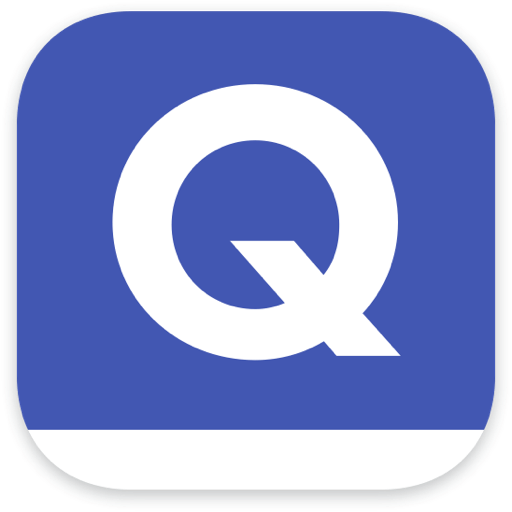From August 4, 2018 – the day when I took TOEFL (Test of English as a Foreign Language) I had two weeks to get my results. Even though I was mentally exhausted at that point, I decided to take this time to start preparing for the next stage of the contest – an interview and the GRE test. Both events were scheduled for the end of September, so I had about two months for preparation.
In this post, I will focus on the GRE part. Like in the previous article about TOEFL, I am going to describe the structure of the exam, list the resources for preparation and mention my experience as well. So, let’s continue 🙂
What is GRE?
GRE (Graduate Record Examinations) – is a standardized test that is required for admission in many graduate schools in the U.S. and Canada. Students from more than 160 countries can take this test. Depending on their purpose, applicants can choose either General Test or one of six Subject tests that measure knowledge in specific areas (Biology, Chemistry, Literature in English, Mathematics, Physics, Psychology). For the Fulbright contest, we took the computer-delivered General Test. The Fulbright program paid the fee for GRE (the fees varies from $205 to $255 depending on the country).
What is the structure of GRE General Test?
The test takes about 3 hours and 45 minutes. It includes 6 sections with a 10 minute break after the third section.
|
Section |
Number of Questions |
Time |
Section’s features |
|
#1 Analytical Writing |
One “Analyze an Issue” task and one “Analyze an Argument” task |
30 min per task |
Always goes first |
|
#2 -3 Verbal / Quantitative Reasoning |
20 questions per section (40 total) |
30 min per section
|
These sections may appear in any order |
|
# 4-5 Verbal / Quantitative Reasoning |
20 questions per section (40 total) |
35 min per section |
|
|
#6 Underscored |
Varies |
Varies (30- 35 min) |
Appears as either Verbal or Quantitative Reasoning. A test taker does not get any scores for this section. ETS included this part to test new questions for their future purposes. This section appears randomly and a test taker cannot know identify it among others. |
How to prepare for GRE?
ETS (Educational Testing Service) provides students with a number of sources for GRE preparation (books, online courses, etc), both free and available for purchase. GRE Test Preparation Materials in Accessible Formats is the first page I would recommend you to visit. You can see an overview and an introduction to each of the sections + download some of the tests in pdf format. 
Cracking GRE by Princeton Review was the book that I borrowed from my professor. Even though the book was published in 2013 (quite outdated), I liked it because it gave me a clear overview of each section and explained in detail how to “crack” them. For me, the content of GRE and the format of the exam seemed to be much more complex in comparison with TOEFL. So, I needed the most detailed description possible which I, surprisingly, found in Cracking GRE 2013. Even though the old edition was helpful to me, I strongly encourage you to use books that were published recently, as they contain the most updated information.
There are many different tutorials on Youtube as well. One of the most popular sources for GRE preparation is MagooshGRE to which I would recommend you to subscribe first.
GRE vs. TOEFL
What was similar?
I started preparing to GRE right after taking TOEFL, and for the next two months, I followed the same strategies that I had before: planning all my lessons ahead, surrounding myself with learning materials, watching tutorials online and having regular drills.
What was different?
#1 Math. Unlike in the TOEFL test, there are no speaking and listening sections in GRE. Great news? Not for me. This time I had to face a different challenge – preparing to Quantitative Reasoning part that includes solving mathematical problems. Considering that I had not practiced math for more than five years, I could not imagine remembering even a small part of this. I thought of giving up but my boyfriend dragged me out of those thoughts. He did a lot of math during his B.A. program in engineering, so he tutored me to make sure that I understood everything. I found my old school books on algebra, geometry, and arithmetic to use them in addition to GRE textbooks. From the day I finished school, I did not think I would ever open them again. That was, indeed, an unforgettable experience. Although the most astonishing part was that eventually, I got a higher score on Quantitative Reasoning in comparison to Verbal Reasoning
#2 Vocabulary. The Verbal Reasoning section in GRE is distinguished by its specific vocabulary. For a short time, I had to memorize a big number of words, which, as I found, are not commonly used in English. The lexis was completely different from what I had in TOEFL. To make the process less tough and more effective, I tried using different methods to memorize new words. Flashcards with definitions were my number one tool. I printed them and stuck the cards all over my workplace at home. As I had them in front of my eyes every day, most of the lexis was eventually kept in my memory.
Quizlet is the best app that I can recommend using for learning vocabulary. In  this app, you can both create your own set of flashcards or join the classes of other people where all the words are ready for you to learn. You can test yourself on spelling words, matching them with their definitions or writing definitions by yourself. For me, it was super helpful. Approved and strongly recommended or GRE!
this app, you can both create your own set of flashcards or join the classes of other people where all the words are ready for you to learn. You can test yourself on spelling words, matching them with their definitions or writing definitions by yourself. For me, it was super helpful. Approved and strongly recommended or GRE!
Test day
I was taking GRE in Moscow, at the end of September 2018. Surprisingly, that day I felt less anxious in comparison to how it was on TOEFL. Still, that experience was equally stressful.
Before going to the computer room, each of the test takers was scanned with a metal detector (to confirm that we did not have any electronic devices, which could be used for cheating). The procedure repeated as we came from the ten-minute break. I did not expect it to be so strict, and, needless to say, this “added fuel to the fire,” making me feel even more stressed.
During the GRE exam, I did not notice the time passing like it was before during TOEFL. The average time for each section varied from 20 to 35 minutes, so imagine how quickly you should switch from one type of task to a different one (one more similarity to TOEFL). I felt my brain working on its full capacity. By the end of the test, I had a terrible headache that lasted until the end of that day. A heavy dose of painkillers, chocolate bar and taking the fresh air did not help. 
Nevertheless, I was incredibly happy to realize that I was done with the test. Despite the persistent headache, I enjoyed the rest of the day walking in the center of Moscow and taking pictures.
A bit of reflection
In general, I know that I did everything I could to prepare both for TOEFL and GRE. However, looking back at this now, I realize that the main mistake I did was poor time management. At every stage of the contest, I doubted if I took it successfully and spent much time just waiting for the results, hesitating if I should start preparing for the next step. So, from that experience, my advice would be to plan everything before the very first stage of the contest, i.e. before submitting an application. Even though you can’t predict how successfully you pass each stage, keeping yourself prepared will reduce a lot of stress and make you feel more confident. My English professor once told me “Don’t think about failure at all. Just keep going. You should set yourself on success from the very beginning.” I was struggling to follow this advice, and I hope that for you it will not be a problem at all. Best of luck 😉
Now, let me turn this over to you. Have you ever taken the GRE test? How was it? What would be your pieces of advice to prospective test takers?
Sources used:
ETS GRE: https://www.ets.org/gre
MagooshGRE: https://www.youtube.com/user/MagooshGRE